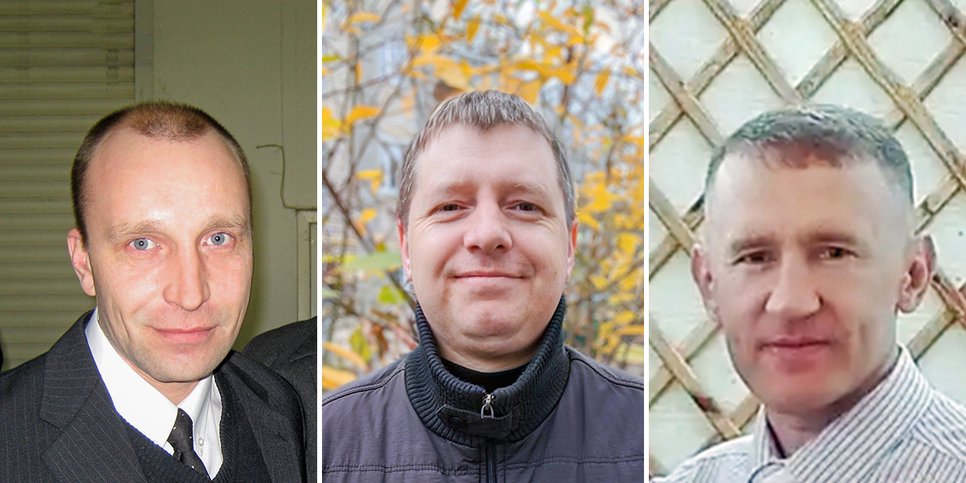Alexey Oreshkov, Alexandr Rakovskiy and Alexander Vavilov
Alexey Oreshkov, Alexandr Rakovskiy and Alexander Vavilov
A Court in Nizhny Novgorod Region Sentenced Three Jehovah's Witnesses to Three Years of Suspended Sentence for Their Belief in Jehovah
Nizhegorod RegionOn October 25, 2021, Dmitry Pestov, judge of the Pavlovsk City Court of the Nizhny Novgorod Region, found believers Aleksey Oreshkov, Aleksandr Rakovsky and Aleksandr Vavilov guilty of participating in extremist activities. In one day, the court went through the stages of the debate of the parties, the last word and the announcement of the verdict.
The believers insist on their complete innocence and can appeal the verdict.
Hairdresser Aleksandr Vavilov, 54, lost his job and the ability to visit his children and granddaughters who live in other cities because of the criminal prosecution. Also Vavilov has been unable to take care of his elderly mother for a long time. Similarly, Aleksey Oreshkov, 50, cannot help his mother, a group I invalid. IT specialist Aleksandr Rakovskiy, 41, father of two young children, also fears dismissal because of his criminal record.
The persecution of believers, organized by the Russian Federal Security Service in the Nizhny Novgorod region, began with mass searches in July 2019. Then the security forces invaded the homes of 31 families of Jehovah's Witnesses. The court sent Oreshkov and Vavilov behind bars. There they spent 211 and 241 days, respectively, and another 19 months under house arrest. Later Rakovskiy was also required to sign an undertaking not to leave, based on the criminal case.
According to the investigation, it was extremism that "unidentified persons, in the implementation of a joint criminal intent, acting intentionally, as a group of persons by prior collusion ... took active steps to ... hold religious speeches and services," during which, like in hundreds of other countries, they peacefully discussed the Bible and Christian teachings, as well as praying.
As in most cases against Jehovah's Witnesses, the prosecution line was built only on proving that law-abiding believers belonged to an "undesirable" religion. For example, Lobachevsky NSU experts, having studied the video files attached to the case, confirmed that they depicted actions characteristic of Jehovah's Witnesses. At the same time, the experts concluded that the recordings do not contain any negative statements about persons of other race, nationality, or religion, and there are no encouragements to hostile actions. An FSB officer during the court hearings was also forced to admit that the Jehovah's Witnesses religion is not banned in Russia. Witnesses involved in the trial drew attention to the numerous falsifications of their testimony in the interrogation protocols, as well as to the pressure they were subjected to. The prosecution did not identify any victims of the believers' actions.
A total criminal cases were initiated against 15 believers in Nizhny Novgorod region. One of them had already been sentenced: Sergey Verkhoturov, 46, received a six-year suspended sentence for his belief in Jehovah.
Legal scholars and human rights activists in Russia and abroad have repeatedly called on the Russian authorities to stop persecuting Jehovah's Witnesses. In 2019, the problem of the legal conflict between freedom of religion and the application of the "extremist" article was mentioned in the report to the President by Russian Human Rights Ombudsman Tatyana Moskalkova.



